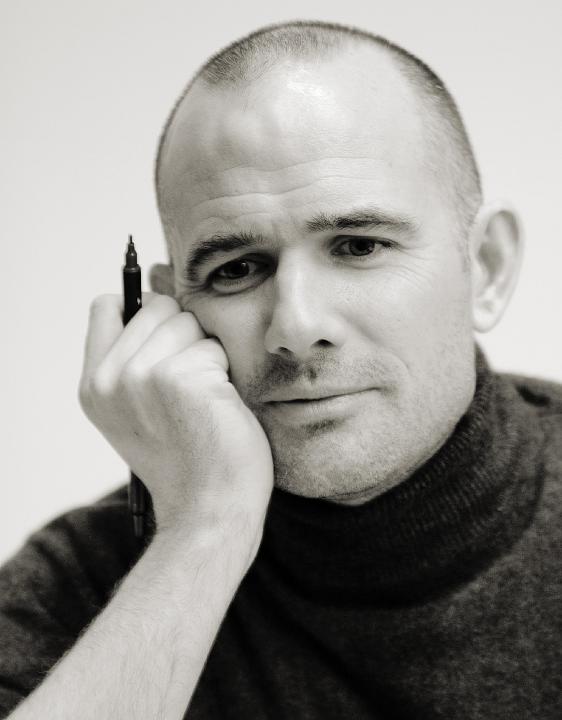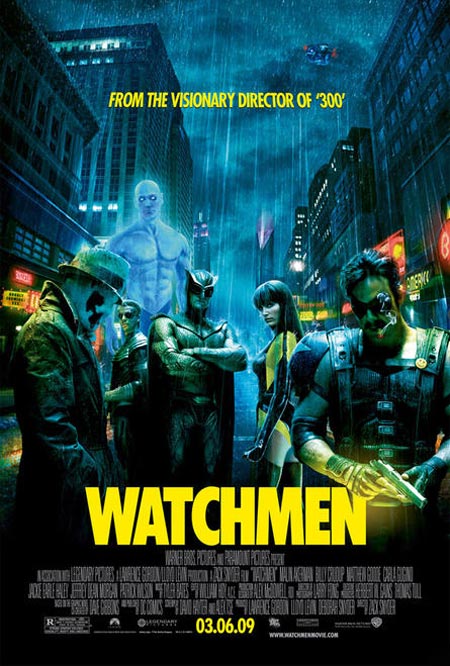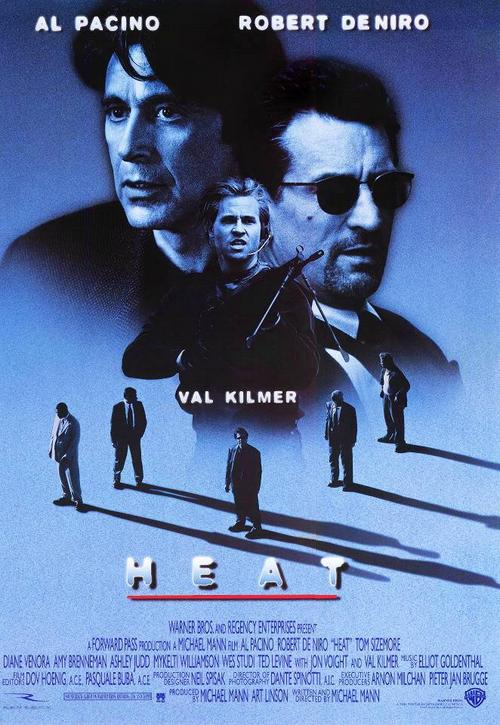First things first... If you're reading this,
thank you! I was very hesitant to start a blog because somehow I just didn't think it was my style. But my co-worker and friend Duran gave me the idea and kept bugging me to get one started, and my girlfriend Johie was also very supportive. Their logic was very simple. "Alex, you talk and write about all this stuff anyway, so why not just go for it!" Point taken, and so here we are.
So now, here's my vision for what I want this blog to be, as well as a couple things about myself, and a few other points about how I will approach certain things.
I have always been a big fan of film and music. For as long as I can remember media has been a big part of my life, all the way back from when my dad would play Depeche Mode on his stereo for me to dance to when I was about 5 years old. And now that I think about it, my dad is really a major reason for why I developed certain tastes in music and movies. From the beginning, he's always emphasized that the media we ingest should be of a certain quality. Why listen to some piece of crap on the radio just because some record executive wants to push it down our throats?
Now, this is not to say that popular music and movies can never be good. They often are. But let me be very clear... a good amount of the mainstream is total shit, and even if it's enjoyable at a certain base level, it should always be viewed from the perspective of acknowledgement of how bad it really is. Here I'm talking about things like Transformers (2007) and Britney Spears. Sure, we all like to see stuff get blown up from time to time, and Britney is fascinating from a certain sociological point of view, but make no mistake, both Transformers and Britney contribute nothing of any real value to society.

So, this leads me to the point. In this blog I want to discuss issues like WHY so much terrible media is forced on us by the powers that be, and celebrate the great movies, television, and music that DO get made. I will review the movies I see and the music I listen to, and I will try to keep an eye on the bigger picture as much as I can. The fact is, we live in a society where we are bombarded with advertising from the moment we wake up until the moment we fall asleep, and it affects us in ways we don't realize. My goal is to help people separate what some big company
tells them is good from the products that actually
are good. I want people to learn to think for themselves and demand a quality product.
Just remember, every time you buy a ticket to a movie or buy an album, you're voting. You don't have to go see Transformers: Revenge of the Fallen (2009) just because it's the only movie out. You don't have to go buy Lady Gaga just because you've heard that stupid Poker Face song on the radio 18 times in the last week. The more we, as a people, demand quality entertainment, and support the artists creating it, the more power gets transferred from
them (the corporations)
to YOU.
Just a couple other things...
-When I do reviews I will score out of a scale of 10, 10/10 being the highest possible score. I don't have an exact formula for how I arrive at my final score, but it's some combination of gut reaction and technical merit.
-When I refer to albums and movies I will include the year it was released in ( ) following the title.
-Other than that there are very few rules I will follow. I'll use this as a platform to talk about whatever I feel is worthwhile at the time in any format I deem appropriate. Most of the time I plan on writing articles or editorials that argue a certain viewpoint, but if I feel like posting a few sentences to rant about the latest thing that annoys me... so be it.
-ENJOY!
 Conventional wisdom states that there are 5 major genres (Drama, Comedy, Horror, Sci-Fi/Fantasy, and Action/Adventure) and various combinations and sub-genres within those (ex. Thriller and Romantic Comedy). Most films fit neatly into one of these common genres and crafting the trailer and marketing campaign then becomes a simple matter of playing on the standard conventions of that particular category. When we're at the theater and see the trailer for Horsemen (2009) we can instantly tell it's going to be a Horror/Mystery film because of the creepy text that drips on the screen and the ominously creepy music that gradually increases in intensity.
Conventional wisdom states that there are 5 major genres (Drama, Comedy, Horror, Sci-Fi/Fantasy, and Action/Adventure) and various combinations and sub-genres within those (ex. Thriller and Romantic Comedy). Most films fit neatly into one of these common genres and crafting the trailer and marketing campaign then becomes a simple matter of playing on the standard conventions of that particular category. When we're at the theater and see the trailer for Horsemen (2009) we can instantly tell it's going to be a Horror/Mystery film because of the creepy text that drips on the screen and the ominously creepy music that gradually increases in intensity.
 And not surprisingly, HBO's philosophy is almost the polar opposite of the other major TV network's. They wisely allow a show to develop, with or without amazing ratings on the pilot episode. When Entourage first started it was a pretty shallow show. It was just a voyeuristic look into the world of celebrity. There was really no plot and no character development, and it didn't light the world on fire in the ratings department in the way that Sex and the City did. But HBO believed the show could be something special, and they allowed it the time and freedom to be creative.
And not surprisingly, HBO's philosophy is almost the polar opposite of the other major TV network's. They wisely allow a show to develop, with or without amazing ratings on the pilot episode. When Entourage first started it was a pretty shallow show. It was just a voyeuristic look into the world of celebrity. There was really no plot and no character development, and it didn't light the world on fire in the ratings department in the way that Sex and the City did. But HBO believed the show could be something special, and they allowed it the time and freedom to be creative.
 If Entourage were on a traditional TV network some executive would be calling up the producer in a panic saying "Don't mess with the formula! Why change what's working?" But on HBO they celebrate change and embrace the chance to try something new. The Showtime network has recently figured this out as well and has developed great shows like The Tudors and Weeds. Now if only the rest of TV could take a page from HBO's script and start respecting the audience, maybe they wouldn't have to cancel so many shows before they have the chance to become great.
If Entourage were on a traditional TV network some executive would be calling up the producer in a panic saying "Don't mess with the formula! Why change what's working?" But on HBO they celebrate change and embrace the chance to try something new. The Showtime network has recently figured this out as well and has developed great shows like The Tudors and Weeds. Now if only the rest of TV could take a page from HBO's script and start respecting the audience, maybe they wouldn't have to cancel so many shows before they have the chance to become great. Fast forward to 2009. I had long forgotten the name of the book, but somewhere in the back of my mind I really wanted to find out what that crazy book was and get my hands on a copy. One day I was hanging out online on my favorite website imdb.com and I was reading posts on the Film General forum, when suddenly I found someone talking about the book. It was called
Fast forward to 2009. I had long forgotten the name of the book, but somewhere in the back of my mind I really wanted to find out what that crazy book was and get my hands on a copy. One day I was hanging out online on my favorite website imdb.com and I was reading posts on the Film General forum, when suddenly I found someone talking about the book. It was called 

 Now that we have access to so much more media than in the past companies are coming up with new and creative ways to sneak their ads into all aspects of our lives. They're on TV, radio, print media, internet, billboards, and the most annoying of all... the sponsorship of stadiums and events. The idea is that even if we're not consciously aware of an ad's presence we're still getting the message on an almost sub-conscious level.
Now that we have access to so much more media than in the past companies are coming up with new and creative ways to sneak their ads into all aspects of our lives. They're on TV, radio, print media, internet, billboards, and the most annoying of all... the sponsorship of stadiums and events. The idea is that even if we're not consciously aware of an ad's presence we're still getting the message on an almost sub-conscious level.
 Upon its theatrical release the film was a hit, but only barely. It grossed $107 million at the US box office, which considering the pre-existing fan base, the size of the marketing campaign, and the success of Snyder's previous film 300 (2006) could only be considered disappointing at best. Everything seemed to be in the film's favor, so why did it fail to connect with the public? Let's take a closer look.
Upon its theatrical release the film was a hit, but only barely. It grossed $107 million at the US box office, which considering the pre-existing fan base, the size of the marketing campaign, and the success of Snyder's previous film 300 (2006) could only be considered disappointing at best. Everything seemed to be in the film's favor, so why did it fail to connect with the public? Let's take a closer look. For one, it was long, with the running time clocking in at 2 hours and 42 minutes, and American audiences have always had a hard time sitting through anything over 2 hours. Secondly, despite the fact that it's about superheroes it was not a pure action film, and those who were unfamiliar with the source material were probably disappointed by the lack of fight scenes. And lastly, (this is where I get to the point) it's a cerebral film, a satire of American culture. It's about our obsession with superheroes, the struggle between safety and civil rights, and whether or not the ends justify the means. The film examines what might take place in the psyche of a superhero if one were to really exist. These are not things people expect to have to think about when they go see a movie with a big blue man that can blow things up by pointing at them. People expect simple, fun, action. Ultimately, that's why a movie that appeals to our base sensibilities, like Synder's
For one, it was long, with the running time clocking in at 2 hours and 42 minutes, and American audiences have always had a hard time sitting through anything over 2 hours. Secondly, despite the fact that it's about superheroes it was not a pure action film, and those who were unfamiliar with the source material were probably disappointed by the lack of fight scenes. And lastly, (this is where I get to the point) it's a cerebral film, a satire of American culture. It's about our obsession with superheroes, the struggle between safety and civil rights, and whether or not the ends justify the means. The film examines what might take place in the psyche of a superhero if one were to really exist. These are not things people expect to have to think about when they go see a movie with a big blue man that can blow things up by pointing at them. People expect simple, fun, action. Ultimately, that's why a movie that appeals to our base sensibilities, like Synder's 


 Some critics have complained that Half-Blood lacks the sense of magic and wonder of the prior films, but what they aren't realizing is that the world of Potter has already been established. We already know that the staircases in the castle move and that the portraits can speak to you, so it's not necessary to dwell on those things any more. What Writer Steve Kloves, Director David Yates, and Producer David Heyman have so brilliantly done is simply treat the magical aspects of the story as totally normal, which allows the audience to focus on the story and take it seriously. This is important considering it's a story about wand carrying wizards battling for control of a magical society. If a fantasy film isn't taken seriously by the film makers it certainly won't be taken seriously by the audience, and it's obvious from the tone of the film that this is no joke, even though humor still plays a big part as it has throughout the series.
Some critics have complained that Half-Blood lacks the sense of magic and wonder of the prior films, but what they aren't realizing is that the world of Potter has already been established. We already know that the staircases in the castle move and that the portraits can speak to you, so it's not necessary to dwell on those things any more. What Writer Steve Kloves, Director David Yates, and Producer David Heyman have so brilliantly done is simply treat the magical aspects of the story as totally normal, which allows the audience to focus on the story and take it seriously. This is important considering it's a story about wand carrying wizards battling for control of a magical society. If a fantasy film isn't taken seriously by the film makers it certainly won't be taken seriously by the audience, and it's obvious from the tone of the film that this is no joke, even though humor still plays a big part as it has throughout the series. A couple years later I found an old bootleg cassette tape of Thriller that belonged to my dad. I threw it in the old tape deck and gave it a listen, and I was never really quite the same again. Right then and there I became aware of what Pop music meant, and it made me feel cool that I was an 11 year old kid listening to music that was recorded before I was born.
A couple years later I found an old bootleg cassette tape of Thriller that belonged to my dad. I threw it in the old tape deck and gave it a listen, and I was never really quite the same again. Right then and there I became aware of what Pop music meant, and it made me feel cool that I was an 11 year old kid listening to music that was recorded before I was born.

 Like Martin Scorsese, Mann has long been thought of as a "Crime" film maker, and while in both cases it's true that Crime is a theme frequently visited by these directors, both have made great films that have little or nothing to do with crime. It's a shame because neither of these great talents should ever be thought of as a one-trick-pony.
Like Martin Scorsese, Mann has long been thought of as a "Crime" film maker, and while in both cases it's true that Crime is a theme frequently visited by these directors, both have made great films that have little or nothing to do with crime. It's a shame because neither of these great talents should ever be thought of as a one-trick-pony. 

 To quote Jackie Treehorn from The Big Lebowski (1998), "People forget that the brain is the biggest erogenous zone." And it's true. Without things like character development, believable acting, good writing, and a strong narrative you basically just end up with porn. In the case of Transformers: Revenge of the Fallen (2009)... Robot Porn.
To quote Jackie Treehorn from The Big Lebowski (1998), "People forget that the brain is the biggest erogenous zone." And it's true. Without things like character development, believable acting, good writing, and a strong narrative you basically just end up with porn. In the case of Transformers: Revenge of the Fallen (2009)... Robot Porn. 
 So, this leads me to the point. In this blog I want to discuss issues like WHY so much terrible media is forced on us by the powers that be, and celebrate the great movies, television, and music that DO get made. I will review the movies I see and the music I listen to, and I will try to keep an eye on the bigger picture as much as I can. The fact is, we live in a society where we are bombarded with advertising from the moment we wake up until the moment we fall asleep, and it affects us in ways we don't realize. My goal is to help people separate what some big company tells them is good from the products that actually are good. I want people to learn to think for themselves and demand a quality product.
So, this leads me to the point. In this blog I want to discuss issues like WHY so much terrible media is forced on us by the powers that be, and celebrate the great movies, television, and music that DO get made. I will review the movies I see and the music I listen to, and I will try to keep an eye on the bigger picture as much as I can. The fact is, we live in a society where we are bombarded with advertising from the moment we wake up until the moment we fall asleep, and it affects us in ways we don't realize. My goal is to help people separate what some big company tells them is good from the products that actually are good. I want people to learn to think for themselves and demand a quality product.